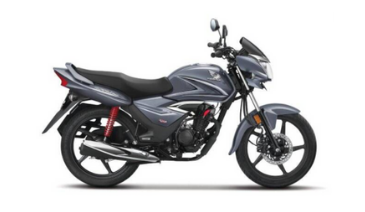As the nation gets ready to celebrate its 74th Independence Day this Saturday, it is a good time as any to turn the spotlight onto another of India’s top companies which had its origins before the freedom movement spurred by people with zeal, commitment and enthusiasm.
The 1940’s were turbulent times, but in the midst of all the uncertainty, four young restless brothers from Kamalia, district Toba Tek Singh in undivided Punjab, from a simple middle-class Arora/Khatri family were marking time for an opportunity to explode upon the Indian corporate scenario. They were the Munjal brothers: Dayanand, Satyanand, Brij and Om.
The Munjal brothers always looked beyond their traditional business of vegetable trading. Brijmohan Lal had barely stepped out of his teens when his older brothers decided to set up their new business – trading in bicycle components.
In 1943, they decided to shift base from Lahore to Amritsar.
There were only bicycles on the road but no means to repair them. Some artisans in Sialkot, Amritsar and Lahore, started making some components in a very crude way. The Munjals started getting those parts from the market and whenever they could get some imported parts they gave them to these artisans along with money to start making these parts.
Four years after the business shifted to Amritsar, India became a free country and the turbulent political climate in Amritsar frightened them and with little choice they shifted base to Ludhiana.
Ludhiana in the early 1950s was the melting pot of path-breaking business ideas, a place steaming with entrepreneurs. This one sleepy little town evolved into a buzzing business hub and captured the spirit of an emerging new India.
Brijmohan Lal started travelling across the length and breadth of India, scouting for new possibilities. It was during one such trip that he got the idea to manufacture bicycles.
In 1956, the Punjab Government issued tender notices for twelve new industrial licenses to make bicycles in Ludhiana. Munjal and his brothers participated in the bid and won the contract. Hero Cycles was registered as a large-scale industrial unit with capital partly financed by the Government of Punjab.
Hero Cycles was the first company to export bicycles on a large scale. In 1975, the company had become the largest bicycle manufacturer in India. By 1986, Hero Cycles entered the Guinness Book of Records as the largest manufacturers of bicycles in the world.
Meanwhile ,in the late 70s, the Indian government doled out licenses to Indian companies to venture into mopeds and Hero Cycles went on to make its own mopeds modelled on the Peugeot machine but designed in India and it was called Majestic Auto.
By 1983, Majestic Auto had captured almost 35% of the Indian moped market.
Hero Honda started its operations in 1984 as a joint venture between Hero Cycles of India and Honda of Japan. It set up its first assembly line in Dharuhera, Haryana and the first 100 cc Hero Honda motorcycle came off the assembly line in April 1985.
“Fill it, shut it, and forget it”. Slick and unforgettable slogans for a never before kind of launch and a new icon in the two-wheeler industry was born.
Brijmohan Lal died quite suddenly in June 1991 and his younger son, Pawan took over the leadership.
In 2010, when Honda decided to move out of the joint venture, Hero Group bought the shares held by Honda.
With innovation at the core of its philosophy, Hero MotoCorp has been at the forefront of designing and developing technologically advanced motorcycles and scooters for customers around the world. It became the world’s largest two-wheeler manufacturer in 2001, in terms of unit volume sales in a calendar year, and has maintained the coveted title for the past 19 consecutive years.
With over 90 million satisfied customers across the globe, it continues to champion socio-economic progress and empowerment through its range of products and services.
Hero MotoCorp, it has taken rapid strides to expand its presence to 37 countries across Asia, Africa, and South & Central America.
Hero MotoCorp has six globally benchmarked manufacturing facilities in India located at Dharuhera, Gurugram, Haridwar, Neemrana, Halol and Chittoor besides a facility in Colombia and at Jessore in Bangladesh. With 9000 customer touch points, an installed capacity of 9.1 million units, a turnover of Rs.29614 crores, there is no stopping this Hero!
If you have a question, share it in the comments below or DM us or call us – +91 9051052222. We’ll be happy to answer it.
– Melvyn Pinto
















